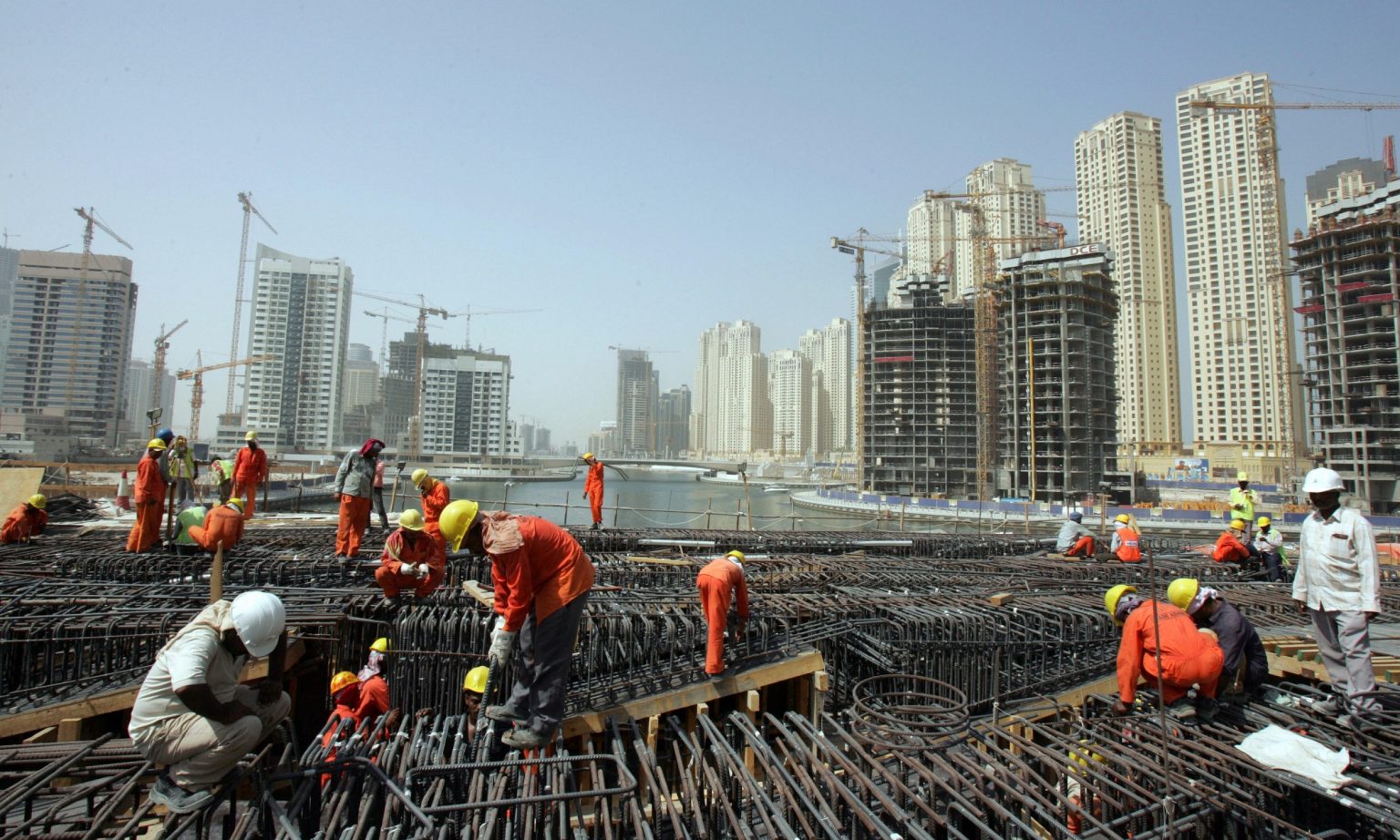Running away from financial impasse in their countries, foreign workers come to the majority of the Gulf Cooperation Council (GCC) countries to obtain suitable job opportunities.
However, foreign workers are often exposed to racist practices from the host countries in the Gulf. These practices are also known as labor rights violations.
Labor rights violations are represented in workers’ receiving low wages after working long hours. This is a violation of labor laws, especially in light of the fact that they are not able to obtain residency or nationalities from the GCC countries.
The UAE is in the lead of countries that violate foreign workers’ rights. Workers are subjected to violations that may be less severe, in Saudi Arabia, Qatar and Bahrain.
Foreign workers in the Gulf
Although the GCC economy is heavily dependent on foreign labor, its member states do not provide any guarantees or respect the rights for these migrant workers.
For instance, foreign workers are allowed to obtain a citizenship, permanent residency, or access to government pension systems in the Gulf.
Mercer, a global consulting company, conducted a survey, showed that nearly half of migrant workers in the UAE either “do not have plans to ensure a decent living after retirement or plan to work after retirement age”.
The vast majority of migrant workers have little access to public pension systems in their home countries.
Neglecting workers
“The faith of construction workers in the Gulf is not part of the public discourse here in India. It is a neglected society,” says Indian scholar Gino Zakaria Omen.
An example is Emirates Airlines International, which has been running its own provident fund since 1991 and is increasing the monthly deposits of employees in the fund with a contribution of 12% of the employee’s basic salary.
According to Mercer, only 15% of employees surveyed in the UAE have access to a corporate pension plan.
Nicholas Dunnis, managing director in Dubai for Azal Consulting, said Gulf policy makers are currently studying portable social protection tools for migrant workers in the form of mobile savings accounts.
He said that these accounts would be linked to retirement savings plans and funded by both employees and employers. These tools can become mandatory, he added.
The UAE announced in January 2021 that it would grant citizenship to foreign investors, people of talent, doctors, engineers and artists nominated from members of the royal family or Emirati officials.
According to the Passport Index 2021, the UAE passport ranks 15th in the world. However, acquiring Emirati citizenship is still reserved for a few distinguished individuals.
Inconsistency of rights
Since the outbreak of the Coronavirus pandemic, the gap between the rights of citizens and migrant workers has deepened as Gulf governments openly favor the local population.
In April 2020, the Saudi government announced that it would pay 60% of the wages of citizens working in the private sector, with a maximum of 9,000 riyals ($2,400) per person.
Some employers also unilaterally imposed wage cuts and took advantage of random returns to avoid paying migrant workers who then returned home.
Prominent Indian politician Shashi Tharoor said in August 2020 that Gulf countries and labor-exporting countries “need to develop a robust mechanism to monitor and trace these cases”.
Uncertainty about payment also affects end of service benefits, which is the amount of money GCC employers are legally required to pay upon termination of an employee.
Over the past year, 150 workers employed by a Bahraini company have struggled to survive in the UAE, while waiting for end-of-service benefits and outstanding wages.
The Bahrain Center for Human Rights issued a report, in October 2019, highlighting the risks faced by migrant workers in the United Arab Emirates.
The center stressed the need to grant contracts to companies that have clear commitments to workers’ rights, impose strong protections for migrant workers, and guarantee their rights.
Keep reading: UAE Is The Worst: Labor Rights Violations Escalated During The Pandemic
